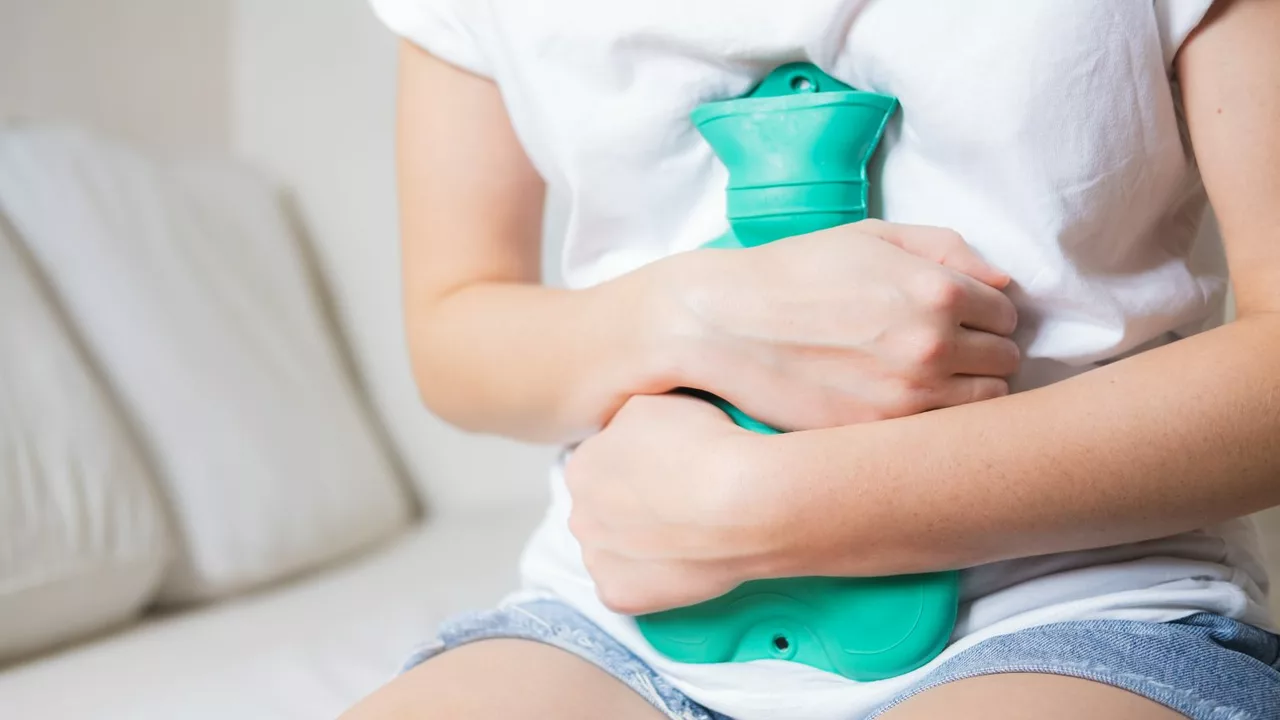Understanding Menstrual Cramps
Before diving into the link between menstrual cramps and pelvic floor health, it's important to understand what menstrual cramps are. Menstrual cramps, also known as dysmenorrhea, are painful sensations that are felt in the lower abdomen that can occur both before and during a woman's menstrual cycle. These cramps are the result of the uterus contracting to help expel its lining. The severity of menstrual cramps can range from mild discomfort to severe pain that can interfere with daily activities. These cramps can be accompanied by other symptoms like nausea, vomiting, fatigue, and even diarrhea.
The Role of the Pelvic Floor
The pelvic floor is a set of muscles located at the bottom of your pelvis that supports the uterus, bladder, small intestine, and rectum. This muscle group plays a vital role in women's health and wellness, assisting in everything from urination to sexual function and childbirth. A strong pelvic floor can help control urinary and bowel functions, and contribute to sexual satisfaction. However, when these muscles become weakened or overly tight, it can lead to various health issues, including contributing to the severity of menstrual cramps.
How Pelvic Floor Health Impacts Menstrual Cramps
When the muscles of the pelvic floor are either too weak or too tight, they can exacerbate the pain of menstrual cramps. Tight pelvic floor muscles can cause tension and discomfort, which can worsen menstrual pain. On the other hand, weak muscles may not provide enough support for the uterus, causing it to tilt and increase pressure on the nerves, contributing to cramps. Therefore, maintaining a healthy pelvic floor is crucial for managing menstrual pain.
Exercise and Its Effects on the Pelvic Floor
Just like any other muscle group in our body, the pelvic floor can be strengthened and relaxed through regular exercise. Pelvic floor exercises, often known as Kegel exercises, can help in maintaining the health of these muscles. Regular exercise can help strengthen weak pelvic floor muscles, while relaxation techniques can relieve tension in tight ones. By incorporating these exercises into your routine, you can improve your pelvic floor health and potentially reduce the severity of menstrual cramps.
Professional Help for Pelvic Floor Health
If you're struggling with severe menstrual cramps and think your pelvic floor health might be a contributing factor, you should consider seeking professional help. Physical therapists who specialize in women's health or pelvic floor therapy are trained to assess and treat pelvic floor disorders. They can guide you through exercises, manual therapy, and provide advice on lifestyle modifications to improve your pelvic floor health and manage menstrual cramps.
Importance of Nutrition in Pelvic Floor Health
Your diet can play a significant role in your pelvic floor health. Certain foods can contribute to inflammation, which can exacerbate pelvic floor dysfunction and menstrual pain. Conversely, a diet rich in anti-inflammatory foods can help reduce inflammation and support pelvic floor health. Eating a balanced diet that includes plenty of fruits, vegetables, lean proteins, and whole grains can go a long way in promoting overall health and well-being, including pelvic floor health.
Other Lifestyle Factors Affecting Pelvic Floor Health
Besides diet and exercise, other lifestyle factors can impact your pelvic floor health. Factors such as stress, poor posture, excessive weight, and smoking can all negatively impact your pelvic floor muscles, potentially leading to dysfunction and increased menstrual pain. On the other hand, managing stress, maintaining a healthy weight, quitting smoking, and practicing good posture can all contribute to improved pelvic floor health.
Moving Forward with Better Pelvic Floor Health
Understanding the connection between menstrual cramps and pelvic floor health is the first step in managing your menstrual pain better. By focusing on pelvic floor health, you can help to reduce the severity of your cramps and improve your overall quality of life. Remember, every woman's body is unique, and what works for one may not work for another. Always consult with a healthcare professional before starting any new exercise or diet regimen. With a little patience, persistence, and professional guidance, you can improve your pelvic floor health and manage your menstrual pain better.

Tanuja Santhanakrishnan
July 12, 2023 AT 17:40Cecil Mays
July 13, 2023 AT 07:24Raj Modi
July 13, 2023 AT 20:31Sarah Schmidt
July 14, 2023 AT 07:49Billy Gambino
July 14, 2023 AT 14:16Karen Werling
July 14, 2023 AT 19:01STEVEN SHELLEY
July 15, 2023 AT 02:44Emil Tompkins
July 16, 2023 AT 02:41Kevin Stone
July 16, 2023 AT 13:31Natalie Eippert
July 16, 2023 AT 20:58Tanuja Santhanakrishnan
July 16, 2023 AT 22:21